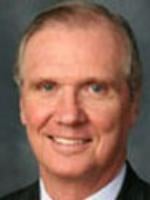On May 6, 2013, the Securities and Exchange Commission (SEC) instituted cease-and-desist proceedings against the City of Harrisburg, Pennsylvania (City of Harrisburg or the City), under the antifraud provisions of the Securities Exchange Act of 1934 (Exchange Act), which proceedings the City agreed to settle on the same day without admitting or denying fault, and no fine was levied. See SEC Order instituting Cease-and-Desist Proceeding (Order). The Order reports that from January 2009 through March 2011, the City was experiencing significant financial distress and failed to submit annual financial information, audited financial statements, notices of failure to provide required annual financial information and notices of “material events” as required by its continuing disclosure undertakings. Failure by municipal issuers to comply with their continuing disclosure undertakings is an area of focused concern by the SEC as reflected in its Report on the Municipal Securities Market issued on July 31, 2012.
The Order states that the City’s failure to comply with its continuing disclosure undertakings made it necessary for investors and the trading markets to seek out other public statements by the City or City Officials for current information on the City of Harrisburg’s financial condition, specifically mentioning public statements in the Mayor’s State of the City Address in 2009. The Order, among other things, stated that “[t]hose public statements materially misstated and failed to disclose material information regarding Harrisburg’s financial condition and credit ratings.” Accordingly, the SEC determined that the City and certain City officials engaged in “reckless conduct” and violated the Exchange Act by making misleading statements that, under the circumstances of the Harrisburg case, were reasonably expected to reach investors and the trading markets, even if not specifically published for that purpose.
Coincident with issuance of the Order, the SEC also released a Report under Section 21(a) of the Exchange Act (Report) addressing “the obligations of public officials relating to their secondary market disclosures for municipal issuers.” While an SEC report addressing the public statements of public officials might not have been issued at this point had the City not created a vacuum of secondary market information by failing to comply with its continuing disclosure undertakings, the following admonitions of the Report merit close consideration.
Unlike many primary offering disclosure documents, statements by public officials that reach the secondary market may not be subject to the same comprehensive review with respect to the disclosure standards of the federal securities laws. Nevertheless, public officials may have liability under the antifraud provisions of the federal securities laws for such statements. Therefore, the statements of those public officials who may be viewed as having knowledge regarding the financial condition and operations of a municipal issuer should be carefully evaluated to assure that they are not materially false or misleading.
* * *
Given this potential for liability, public officials who make public statements concerning the municipal issuer should consider taking steps to reduce the risk of misleading investors. At a minimum, they should consider adopting policies and procedures that are reasonably designed to result in accurate, timely, and complete public disclosures; identifying those persons involved in the disclosure process; evaluating other public disclosures that the municipal securities issuer has made, including financial information and other statements, prior to public dissemination; and assuring that responsible individuals receive adequate training about their obligations under the federal securities laws.
It is appropriate to note this statement in the Order: “With the assistance of counsel, Harrisburg has enhanced its disclosure process by instituting formal written policies and procedures with respect to public statements regarding financial information made by the City” and its compliance with its continuing disclosure undertakings.




 />i
/>i

